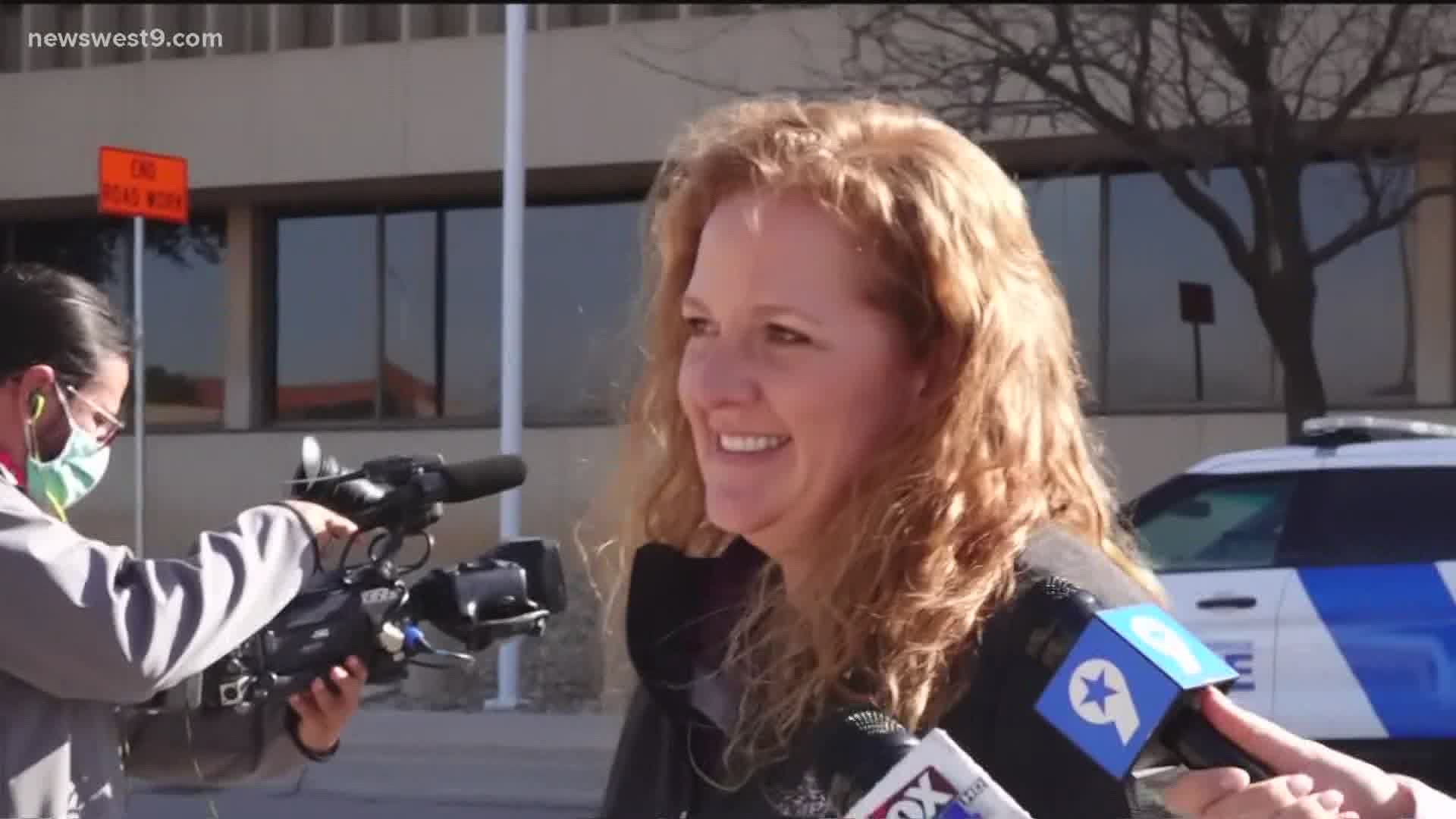MIDLAND, Texas — The United States Attorney's office is opposing Jenny Cudd's requests to move her trial from Washington, D.C. to Midland and to sever her case from Eliel Rosa.
Cudd and Rosa are accused of taking part in the January 6 riot at the United States Capitol and have been charged with multiple felony offenses.
In court documents, the attorney's office argues that Cudd's request to move her trial, based primarily on the voting records and previous cases tried in D.C., should be denied as premature.
The office states that extensive pre-trial screening and examination of each potential juror will ensure that Cudd receives a fair trial.
Since this process has not been completed yet, the U.S. Attorney's office says this motion should be dismissed as being premature.
However, the documents did say if during the examination process it becomes clear an impartial jury cannot be selected for Cudd, she would be entitled to any actions needed to secure she receives a fair trial.
Cudd had cited a case against the Nixon administration, to which "the court declared that, “[n]ot without reason, the relevance of this information seems to have escaped the prosecution, the defendants, their counsel, and the trial court,” and that there was no legal support for the proposition “that a community’s voting patterns are at all pertinent to venue.”
The attorney's office also cites the Constitution, saying that all trials should be held in the state where the crimes were committed to avoid unfairness and hardship that would come with the defendant being prosecuted in a remote place.
Additionally, the office states that a juror hearing of a defendant or the case against them does not necessarily equate to being prejudiced against them.
Documents also point out that Cudd's claims that news coverage would hamper her ability to have a fair trial fail to note that the news source she cites is in Midland, the place she is hoping to have her trial moved to.
"Cudd provides no reason to believe that, by the time her trial begins, D.C. jurors are likely to be able to remember and distinguish the reporting about her from that involving the many hundreds of other people charged as part of the Capitol Attack," documents state.
Concerning Cudd's request to sever her trial from Rosa's, the documents cite the precedent of charging two or more defendants together when they have allegedly participated in the same act constituting the offenses.
Cudd's concerns about pretrial prejudice also came into play here. The attorney's office however stated that the rule of severance concerning prejudice would only be applied in cases of severe prejudice impacting one of the people joined together, which has not been proven in Cudd and Rosa's case at this time.
Additionally, Cudd cited concerns over a voluntary statement Rosa reportedly made to the FBI, as well as the possibility that Cudd would not be able to call Rosa as a witness if the two were tried together. The court stated that it would ensure Cudd's rights were not violated according to the first point, and that Cudd's defense has not established enough need for Rosa to testify at her trial.
The office also cites the need to consider whether "separate trials would involve (1) the presentation of the same evidence; (2) testimony from the same witnesses; and (3) the same illegal conduct."
Since Cudd and Rosa both participated in the Capitol attack, were both from Midland, stayed at the same hotel, and were captured in pictures and videos together, and since the evidence against each of them is largely the same, the court sees no need to separate their cases.
At this time, the court has not made a ruling on whether or not it will side with Cudd or the U.S. Attorney's office.
NewsWest 9 will continue to cover Cudd and Rosa's trial and bring the latest updates as they happen.

